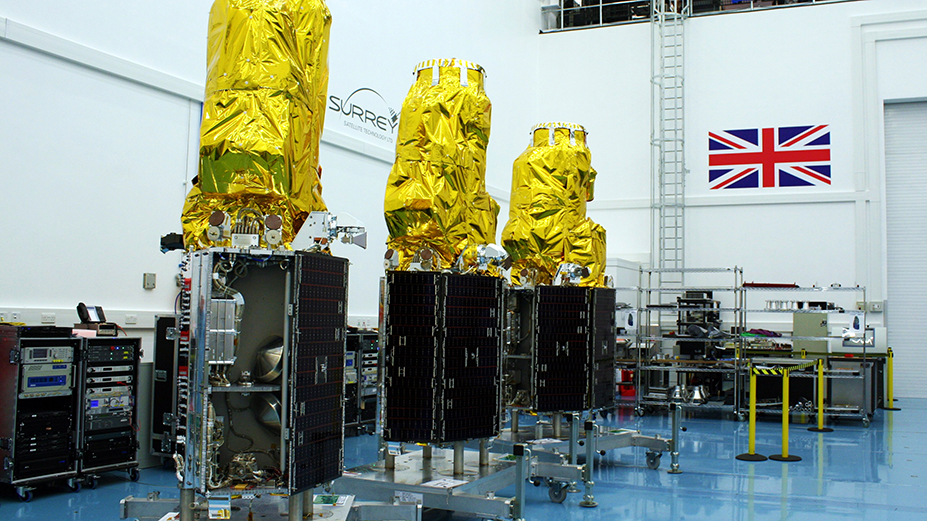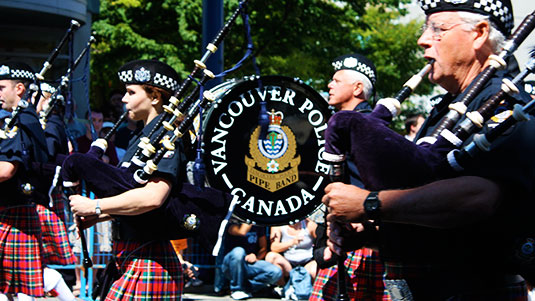Navigating to the future: A CANZUK GPS
Now is the time for Canada, Australia, New Zealand and the UK to grasp the future

In the modern world, satellites equal sovereignty, affecting everything from trade routes and missile trajectories to the smartphone in your hand
Space might be a vacuum, but when it comes to human affairs, it doesn't exist in one. Since the launch of Sputnik, national rivalries, domestic concerns and commercial realities have taken precedence over higher principles like scientific advancement and collective human endeavour. To raise the bar and advance new global standards, Canada, Australia, New Zealand and the UK (CANZUK) should work together in space and aeronautics research.
This is pertinent now following the European Commission's decision to exclude the UK from the Galileo satellite navigation system, and the UK's consideration of creating a 'British GPS' in response. Wouldn't a CANZUK-wide GPS system make more sense than just a British one?
The four nations of CANZUK have had different trajectories in space. The United Kingdom has the most developed space economy, worth around £12 billion each year. The UK government wants to expand this to £40 billion by 2030, 10% of the expected global space industry. The UK's focus is satellite technology, making 40% of the world's small satellites. The UK was an enthusiastic proponent of the Galileo system, and contributed 12% of the budget and much of the work on the system.
Canada has the second most advanced space economy, with a particular focus on robotics - the Space Shuttle robotic arm was made in Canada, for example. However, there are concerns that it has been losing ground over recent years, amid a lack of government focus. Canada's space industry is especially linked to the United States market, with the opportunities and threats that brings.
New Zealand comes next, with a newly established space agency that aims to encourage development of a ultra-small satellites that use recent miniaturisation techniques to do tasks previously reserved for much larger craft. It has also recently started using its uncrowded skies and advantageous geographic position to launch small, private rockets, with the first example being in 2017.
Finally, Australia, with a $4 billion space economy, has recently announced the establishment of a space agency, modelled on the UK or New Zealand versions (as opposed to NASA). This has been the result of a cross-party campaign, concerned that Australia was the only OECD country with no space agency. Space industry jobs have been a particular focus – but also the realisation that Australia can benefit from a national space capability, monitoring the country's unique geography and ecosystems.
With this in mind, what unique attribute can CANZUK bring to the table when creating a satellite navigation system?
Well, space technology is far more globalised than in the Cold War era, where each side zealously guarded their secrets. However, military and security considerations still dominate the field – for example, in order to attract US entrepreneurs for its fledgling space industry, New Zealand has had to sign a technology safeguard agreement. In Russia, rocket engineers are banned from leaving the country, a Cold War policy remnant which Vladimir Putin is unlikely to remove in the current climate.
On the other hand, space exploration often involves multiple countries (even geopolitical rivals) collaborating for common scientific goals. For example, the Square Kilometre Array, a project to build the world's largest radio telescope, involves the UK, Australia, Canada, New Zealand, China, Germany and India (the US is not participating).
This paradoxical situation means that there is one big advantage the CANZUK nations can leverage immediately: mutual trust. A CANZUK Space Pact could encompass technology transfer as a given – this should be easy to arrange, given the already existing level of trust exemplified by the Five Eyes intelligence agreement between the UK, Canada, Australia and New Zealand (and the US).
Whilst it is possible the CANZUK nations could just rely on or support the US GPS system, this has drawbacks.
It's easy to imagine Donald Trump (or a future president with even stronger protectionist views) cutting off access to the US-owned GPS if it was felt to be in the interests of the US. This happened in 1999, when India found its access to GPS cut off during the Kargil War, an undeclared border conflict in Kashmir. It's this desire to avoid being dependent on another party's satellite system which has driven the development of the Russian (originally Soviet) GLONASS, along with Chinese, Japanese and Indian satellite systems. This was also the impetus behind the European Galileo system.
In the modern world, satellites equal sovereignty, affecting everything from trade routes and missile trajectories to the smartphone in your hand – as well as future technologies yet to be invented. Less well known uses of GPS include finance (the signals from the satellites are used to time-stamp transactions) and calibrating power distribution through the electricity grid. Virtually all emergency services use satellite navigation systems.
A CANZUK GPS system would spread the cost of the system across four friendly nations, whilst also avoiding total dependence on the basic versions of the US or EU systems, which could be in theory be degraded or switched off. London Economics recently concluded that the cost of satellite navigation failure for the UK would be £5.2 billion in just five days.
Whilst multiple systems necessarily involve duplication, the slightly different standards for each one can mean a greater overall performance for end users, and greater durability due to increased redundancy.
A particular selling point for CANZUK would be to integrate the well-respected common law legal systems of the four nations. GPS is run by the US Air Force, and whilst Galileo was supposed to be run on a commercial basis, the European Commission's actions suggest it will be run at least partly with political goals in mind. If the CANZUK system could be run on a more law-abiding basis, with some recourse to the legal system to discourage arbitrary wielding of the off-switch, it could give it an advantage over its rivals. This is especially true in an era with increasing protectionism and national power tensions.
Historically, the CANZUK national approaches to space have been small-scale and commercially focused, and this has been successful. But there are times when thinking bigger and grasping the future is necessary – now is one of those times.
A joint satellite navigation system, designed from the ground up to embody a lawful approach could make the CANZUK nations leaders in satellite commerce, build up global resilience and protect CANZUK citizens from being randomly subjected to arbitrary removal of service. Utility, defence and the common good – isn't that the very purpose of government?
Copyright © canzuk.org 2018. All rights reserved.
No part of this article may be reproduced without written consent from the canzuk.org team. If you are interested in reproducing and redistributing this article, please contact us here.
 Our movement is made of volunteers from Canada, Australia, New Zealand and the United Kingdom (CANZUK). We believe our countries enjoy a unique bond thanks to our shared history and common values. We encourage our governments to work closely together and combine their efforts to promote our mutual interests.
Our movement is made of volunteers from Canada, Australia, New Zealand and the United Kingdom (CANZUK). We believe our countries enjoy a unique bond thanks to our shared history and common values. We encourage our governments to work closely together and combine their efforts to promote our mutual interests. Scotland's First Minister Nicola Sturgeon is one of the staunchest opponents of the UK’s departure from the EU. The Scottish National Party leader complains vociferously about Scotland being taken out the EU against its will. In a series of speeches and papers, she has expressed an unwavering desire to remain in the ‘European family of nations’.
Scotland's First Minister Nicola Sturgeon is one of the staunchest opponents of the UK’s departure from the EU. The Scottish National Party leader complains vociferously about Scotland being taken out the EU against its will. In a series of speeches and papers, she has expressed an unwavering desire to remain in the ‘European family of nations’.